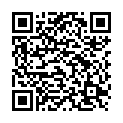|
|
|
| Module code: IBB-220 |
|
|
4VU (4 hours per week) |
|
5 |
| Semester: 2 |
| Mandatory course: yes |
Language of instruction:
English |
Assessment:
[still undocumented]
|
IBB-220 (P420-0236) International Business, Bachelor, ASPO 01.10.2020
, semester 2, mandatory course
|
60 class hours (= 45 clock hours) over a 15-week period.
The total student study time is 150 hours (equivalent to 5 ECTS credits).
There are therefore 105 hours available for class preparation and follow-up work and exam preparation.
|
Recommended prerequisites (modules):
None.
|
Recommended as prerequisite for:
IBB-330 Business Process Management
[updated 06.03.2020]
|
Module coordinator:
Prof. Dr. Stefan Selle |
Lecturer: Prof. Dr. Stefan Selle
[updated 25.11.2019]
|
Learning outcomes:
After successfully completing this module, students will be able to:
- understand data and its categories, types, formats,
- perform data exploration, identify useful data, collect data,
- organize data, clean data, convert data, curate data, preserve data,
- analyze data, interpret data, visualize data, present data,
- think critically when working with data,
- be aware of legal and ethical issues associated with data,
- share data legally,
- evaluate decisions or solutions based on data.
[updated 04.02.2020]
|
Module content:
1. Introduction to data
Data, information, and knowledge
Data categories (master data, transaction data)
Data types (numbers: integer, float; text: characters, strings; date time)
Data formats (structred, semi-strucured, unstructured)
File formats (txt, csv, xml, pdf, xls, doc, ...)
Data producers and consumers
Data lifecycle
2. Data collection
Data discovery and collection
Evaluating and ensuring quality of data and sources
3. Data management
Data organization
Data manipulation
Data conversion
Metadata creation and use
Data curation, security, and re-use
Data preservation
4. Data evaluation
Data tools
Basic data analysis
Data interpretation (understanding data)
Identifying problems using data
Data visualization
Presenting data
Data-driven decision-making
5. Data application
Critical thinking
Data culture
Data ethics
Data citation
Data sharing
Evaluating decisions based on data
[updated 04.02.2020]
|
Teaching methods/Media:
Lectures with integrated exercises supported by e-learning platform (e.g. Moodle).
Laboratory/hands-on training: working on the PC to solve case studies by applying learned techniques using suitable tools.
[updated 04.02.2020]
|
Recommended or required reading:
- Bowen, M., and Bartley, A.: The Basics of Data Literacy: Helping Your Students (And You!) Make Sense of Data, NSTA Press, Arlington, 2013.
- Fontichiaro, K. et al.: Creating Data Literate Students, Michigan Publishing Services, Ann Arbor, 2017.
- Fontichiaro, K. et al.: Data Literacy in the Real World: Conversations & Case Studies, Michigan Publishing Services, Ann Arbor, 2017.
- Herzog, D.: Data Literacy, SAGE Publications, Thousand Oaks, 2015.
- Johnson, C.A.: The Information Diet: A Case for Conscious Consumption, O´Reilly, Sebastopol, 2012.
- Levitin, D.: A Field Guide to Lies and Statistics: A Neuroscientist on How to Make Sense of a Complex World, Penguin Books, London, 2016.
- Mandinach, E.B.: Data Literacy for Educators, Teachers College Press, New York, 2016.
- Smalheiser, N.: Data Literacy: How to Make Your Experiments Robust and Reproducible, Academic Press, Cambridge (MA), 2017.
[updated 17.12.2019]
|

